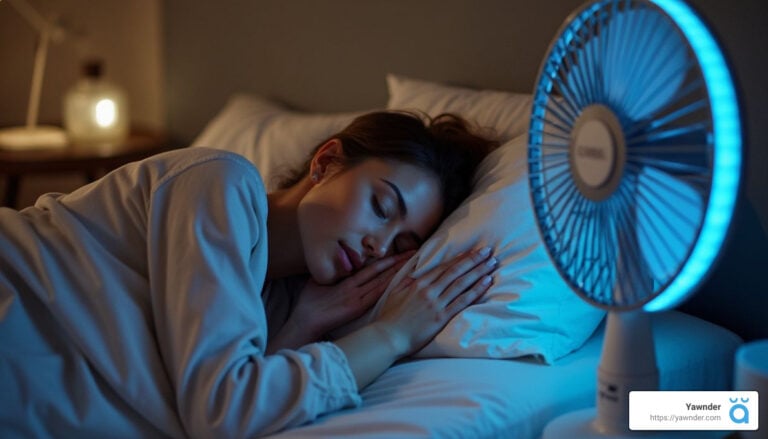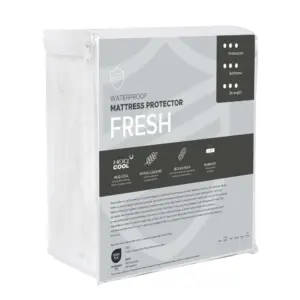How to Get Rid of Night Sweats: Effective Remedies for Women
Say Goodbye to Night Sweats: Effective Remedies for Women
Night sweats are a common issue for many women, particularly when they experience hormonal fluctuations due to the menstrual cycle, pregnancy, or menopause. These episodes of excessive sweating during the night can disrupt sleep and affect overall well-being. Fortunately, there are effective remedies you can use to alleviate night sweats and improve your sleep quality. Let’s explore these strategies to help you find relief.
Understanding Night Sweats
Night sweats can stem from various causes, with hormonal changes being one of the most significant contributors. They can lead to interrupted sleep, leaving you feeling exhausted and irritable during the day.
Causes of Night Sweats
1. Hormonal Fluctuations: Night sweats are often associated with menopause and perimenopause, which can cause a radical drop in estrogen levels. Approximately 85% of menopausal women face hot flashes and night sweats, making these symptoms widespread and often debilitating.
2. Pregnancy: Hormonal shifts during pregnancy can also trigger night sweats in some women, particularly towards the end of their term and shortly after delivery.
3. Infections: Conditions such as tuberculosis and HIV can lead to night sweats as your body battles infections, raising your internal temperature.
4. Medications: Side effects from certain medications, including pain relievers, antidepressants, and diabetes treatments, can cause excessive sweating at night.
5. Other Health Conditions: Thyroid disorders, obstructive sleep apnea, and hyperhidrosis can also be behind night sweats, complicating sleep further.
Understanding these potential causes is vital for identifying the right remedies, whether lifestyle adjustments or medical treatments.
Lifestyle Changes to Reduce Night Sweats
Making specific lifestyle modifications can significantly impact the frequency and severity of night sweats. Here are some expert tips:
Keep Your Bedroom Cool
A comfortable bedroom environment is paramount in combating night sweats. Aim for a temperature of 60-67°F (15-19°C). Here’s how to achieve this:
– Adjust the Thermostat: Set your HVAC system to a cooler setting before bedtime.
– Use Fans or Air Conditioning: Ceiling fans or air conditioners help maintain cool air circulation.
– Open Windows: Fresh air can provide immediate relief on pleasant nights.
Choose the Right Bedding and Sleepwear
What you sleep in can influence your comfort level. Opt for:
– Lightweight Bedding: Use breathable sheets and blankets that can be easily layered.
– Natural Fibers: Cotton and linen are excellent choices for both bedding and pajamas as they wick away moisture.
– Moisture-Wicking Materials: Select sleepwear specifically designed to keep you dry throughout the night.
Avoid Common Triggers
Certain foods and habits can exacerbate night sweats. Consider making these adjustments in your evening routine:
– Limit Alcohol and Caffeine: Both can raise body temperature and lead to increased sweating.
– Steer Clear of Spicy Foods: They can trigger your internal thermostat to go haywire.
– Quit Smoking: Tobacco can interfere with your body’s normal temperature regulation.
Practice Regular Exercise
Regular physical activity can help manage stress and improve your overall sleep quality, reducing the likelihood of night sweats. Aim to exercise during the day to avoid raising your body temperature close to bedtime.
Medical Treatments for Night Sweats
If lifestyle modifications don’t provide sufficient relief, consult your physician about medical options. Here are some commonly prescribed treatments:
Hormone Replacement Therapy (HRT)
HRT is often the first line of defense for treating menopausal symptoms, including night sweats. By replacing lost hormones like estrogen and progesterone, many women find relief. However, HRT may not be suitable for those with a history of specific health issues, so a careful consultation with your doctor is essential.
Non-Estrogen Medications
Several non-estrogen medications can effectively manage night sweats:
– Gabapentin: Originally for seizures, this medication has shown promise in reducing night sweats.
– Clonidine: Used primarily for hypertension, it can also alleviate sweating.
Antidepressants
For some women, antidepressants like paroxetine, venlafaxine, and fluoxetine have also shown effectiveness in managing night sweats, particularly during the menopausal transition.
Natural Remedies for Night Sweats
If you’re seeking gentle alternatives, consider incorporating these natural remedies:
Herbal Remedies and Supplements
– Black Cohosh: Often used for menopause, it may reduce both the frequency and intensity of night sweats.
– Phytoestrogens: Foods rich in phytoestrogens like soy can help balance hormones naturally.
– Valerian Root: Known for promoting better sleep, it may ease hot flashes.
– L-Theanine: This amino acid can help reduce stress-related night sweats.
Mind-Body Techniques
Engaging in mindfulness practices can promote tranquility and reduce stress, helping to manage night sweats. Consider:
– Meditation: Simple breath-focused techniques can aid in relaxation.
– Deep Breathing: Practicing deep breathing exercises before bedtime can help regulate your body temperature.
– Progressive Muscle Relaxation: This technique can relax the body and prepare it for restful sleep.
Frequently Asked Questions about Night Sweats Remedies for Women
How can I treat night sweats in females?
A combination of lifestyle changes, medical treatments, and natural remedies can effectively manage night sweats. Consult your physician for tailored advice that suits your specific situation.
How do I stop waking up with night sweats?
Maintain a cool bedroom, use lightweight bedding, and avoid common triggers like caffeine and alcohol. Always consider moisture-wicking pajamas for added comfort.
How do you stop night sweats and hot flashes naturally?
Consider layering your bedclothes, using a portable fan, and maintaining a healthy weight through diet and exercise.
Conclusion
You don’t have to suffer in silence from night sweats. With the right knowledge and remedies, you can reclaim your restful sleep. Whether through lifestyle changes, medical interventions, or natural strategies, addressing night sweats involves understanding your body and its needs. At Yawnder, we are committed to helping women navigate these challenges with expert evaluations and high-quality sleep products tailored for your comfort. Explore your options and embrace the restful nights you deserve.













